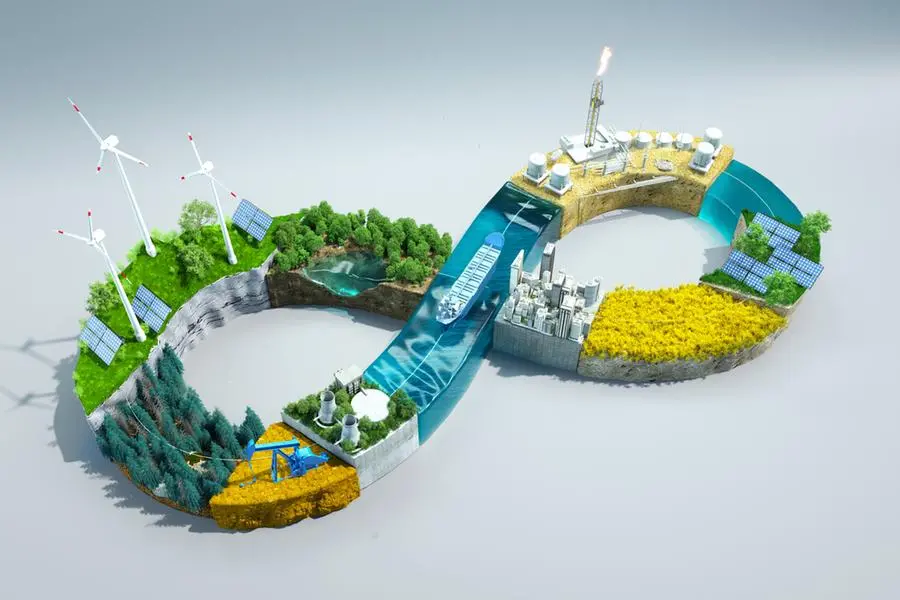PHOTO
In the global fight against climate change, the difference between where the world is and where it needs to be is a function of finance. For developing countries like Nigeria, this is especially necessary because the transition to a green, low-carbon economy will address climate challenges, create sustainable jobs, and gainfully employ its teeming population. Nigeria has continued to take actionable steps that will drive its green economy transition, including the enactment of the Climate Change Act, the amended Electricity Act, the launch of the energy transition plan, commitment to a 2060 net-zero target, the launch of the clean cooking policy, ambitious Nationally Determined Contributions (NDCs), the pledge to triple renewable energy capacity, among others. To drive the transition, the current administration under President Bola Tinubu set up a paresidential committee on climate action and green economic solutions to oversee and coordinate all national policies and programmes related to climate action and green economic development.
However, all plans, policies and frameworks require adequate funding to actualise them. The Africa Development Bank (AfDB), in its 2023 Country Focus Report, states that “Nigeria’s climate financing needs over 2020 – 2030 were estimated at US$247.3 billion (an annual average of about US$22.5 billion), with mitigation activities constituting the largest proportion (71.5 per cent) of the financing needs.” Nigeria thus has a total climate financing gap of US$20.5 billion per annum, which is required for investments in renewable energy, smart agriculture, sustainable transport, water and waste management solutions and so on, among other potential green sectors. Given the preceding, the accreditation of the Development Bank of Nigeria (DBN) as the first Direct Access Entity (DAE) in Nigeria to the Green Climate Fund (GCF) announced on July 17, 2024, was met with great enthusiasm by stakeholders across various verticals of the Nigerian green space. The GCF is the world’s largest dedicated fund, helping small island states and the least developed and developing countries reduce greenhouse gas emissions and enhance their ability to respond to climate change.
Related Posts No Content Available
The accreditation, announced at the 39th meeting of the GCF Board in South Korea, creates new opportunities to boost Nigeria’s green economy. The Federal Government of Nigeria established the DBN with global development partners to address the significant financing challenges facing Nigeria’s micro, small and medium-sized enterprises (MSMEs). It also aims to allow MSMEs to execute climate-resilient and green projects supporting the global green transition and sustainability drive. The development finance institution has a track record of channelling resources through loans and guarantees and has disbursed over N933 billion in loans. The direct access feature under the GCF is designed to help developing countries integrate climate funding within their national climate action plans, such that a DAE, in this case, the DBN, is authorised as a national organisation to receive project funds on behalf of the country, streamlining the process and avoiding high transactional costs associated with using external intermediaries.
A significant milestone for Nigeria
The DBN’s accreditation achievement marks a significant milestone for Nigeria’s green economy goals. According to the GCF, the organisation has the potential to support its work in mobilising climate finance at scale, enhancing private sector participation and diversifying the use of financial instruments such as loans. With scaled climate finance, the Nigerian government will be able to drive innovative climate-smart solutions, advance already existing initiatives, improve efficiency in using natural resources, boost power generation with renewables, facilitate clean transportation and change production, and consumption systems.
Also, access to loans, occasioned by the accreditation, will cause the private sector, especially MSMEs, which make up 96.7 percent of all businesses and contribute over 45 percent to Nigeria’s gross domestic product (GDP), to develop innovative and new business models and low-carbon technologies that will drive Nigeria towards its green economy goals. These potentials point to the fact that the DBN’s successful accreditation is a step in the right direction, aiding Nigeria in reducing its oil dependence and contributing significantly to global decarbonisation efforts. It is important to note that DBN states that all MSMEs (start-up or existing) involved in productive enterprises across Nigerian communities are eligible for loans with a flexible repayment tenure and market-conforming interest rates (up to 10 years with a moratorium period of up to 18 months). So far, they are customers of eligible participating financial institutions (PFIs), such as commercial, microfinance and development banks. With knowledge of the intended project areas under the GCF accreditation, which include energy generation and access, transport, health, food and water security, infrastructure and the built environment, it is therefore advisable that MSMEs be properly positioned to take on sustainable businesses that would allow them to leverage the loan to address climate challenges in Nigerian communities. To ensure that the fund addresses the intended key areas, DBN must hold the PFIs, who will be custodians of the loan, to the strictest measures. The PFIs should, in turn, ensure that the MSMEs are held accountable.
Additionally, Nigerian communities, which have, over the years, suffered disproportionately from the adverse effects of climate change, should take advantage of this opportunity to work with rural MSMEs to access funding that will scale local and Indigenous solutions, which would bring succour to affected populations. The possibilities offered by this single accreditation make one wonder how having multiple accreditations can help a nation to tackle climate change challenges. Therefore, other relevant organisations, government bodies and public and private sector entities should seek to acquire similar accreditation, as this will further bridge Nigeria’s access to the much-needed climate finance intervention.
Garba is the Chief Operating Officer of Nigeria Climate Innovation Centre
Copyright © 2022 Nigerian Tribune Provided by SyndiGate Media Inc. (Syndigate.info).




















